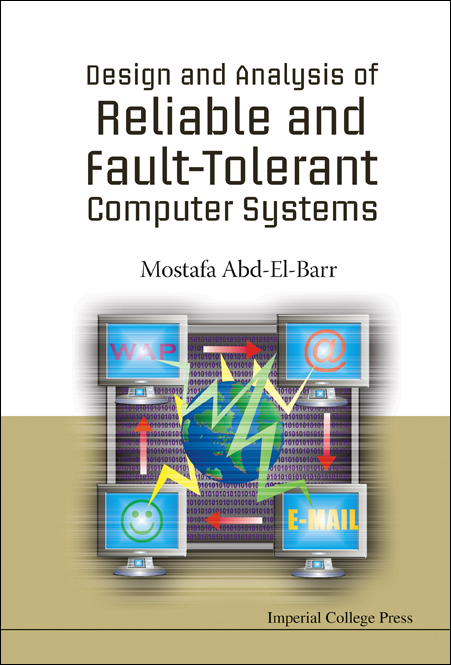System Upgrade on Tue, May 28th, 2024 at 2am (EDT)
Existing users will be able to log into the site and access content. However, E-commerce and registration of new users may not be available for up to 12 hours.For online purchase, please visit us again. Contact us at customercare@wspc.com for any enquiries.
Covering both the theoretical and practical aspects of fault-tolerant mobile systems, and fault tolerance and analysis, this book tackles the current issues of reliability-based optimization of computer networks, fault-tolerant mobile systems, and fault tolerance and reliability of high speed and hierarchical networks.
The book is divided into six parts to facilitate coverage of the material by course instructors and computer systems professionals. The sequence of chapters in each part ensures the gradual coverage of issues from the basics to the most recent developments. A useful set of references, including electronic sources, is listed at the end of each chapter.
Sample Chapter(s)
Chapter 1: Fundamental Concepts in Fault Tolerance and Reliability Analysis (310 KB)
Contents:
- Fundamental Concepts in Fault Tolerance and Reliability Analysis
- Fault Modeling, Simulation and Diagnosis
- Error Control and Self-Checking Circuits
- Fault Tolerance in Multiprocessor Systems
- Fault-Tolerant Routing in Multi-Computer Networks
- Fault Tolerance and Reliability in Hierarchical Interconnection Networks
- Fault Tolerance and Reliability of Computer Networks
- Fault Tolerance in High Speed Switching Networks
- Fault Tolerance in Distributed and Mobile Computing Systems
- Fault Tolerance in Mobile Networks
- Reliability and Yield Enhancement of VLSI/WSI Circuits
- Design of fault-tolerant Processor Arrays
- Algorithm-Based Fault Tolerance
- System Level Diagnosis I
- System Level Diagnosis II
- Fault Tolerance and Reliability of RAID Systems
- High Availability in Computer Systems
Readership: Computer engineers, computer scientists, information scientists, graduate and senior undergraduate students in information science and computer engineering.


























